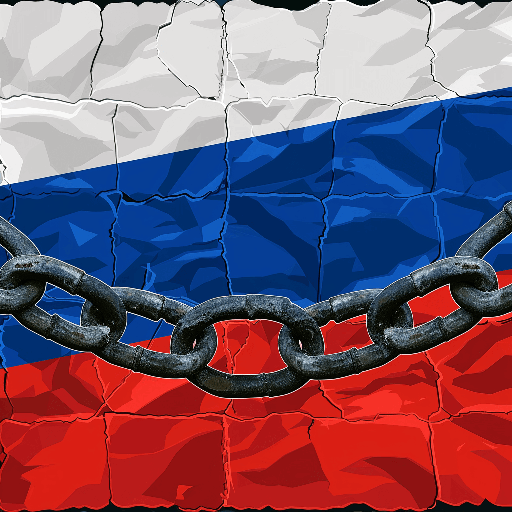VPN Restrictions in Russia: A Chilling Effect on Freedom of Speech in an Authoritarian Regime
In recent years, Russia has tightened its grip on the internet, implementing stringent restrictions on Virtual Private Networks (VPNs).
These measures, ostensibly aimed at combating cybercrime and protecting national security, have profound implications for freedom of speech and the free flow of information in the country.
This article explores the impact of VPN restrictions in Russia, offering commentary on how these actions reflect broader trends of authoritarianism and control over public discourse.

The Crackdown on VPNs
Russia’s crackdown on VPNs began in earnest in 2017, with the introduction of laws requiring VPN providers to block access to websites banned by the government.
In March 2021, Roskomnadzor, Russia’s media watchdog, further escalated these efforts by blocking several popular VPN services and imposing fines on providers that refused to comply with state censorship requirements.
According to Reuters, Roskomnadzor blocked six VPN services in September 2021, citing their failure to adhere to Russian internet regulations.
These actions are part of a broader strategy to enforce the country’s “sovereign internet” law, which aims to create a Russian internet infrastructure independent of global networks, ostensibly to protect against foreign influence and cyber threats.
Implications for Freedom of Speech
The restrictions on VPNs have significant implications for freedom of speech in Russia.
VPNs are essential tools for bypassing government censorship, allowing citizens to access blocked websites and communicate securely.
By limiting access to these tools, the Russian government is effectively curtailing the ability of its citizens to obtain uncensored information and engage in free expression.
A report by Freedom House highlights that Russia’s internet freedom has been in steady decline, with increasing censorship, surveillance, and restrictions on digital rights.
The report indicates that the crackdown on VPNs is part of a broader effort to control the narrative and suppress dissenting voices.
Individual Cases and Personal Impact
The impact of VPN restrictions is not just theoretical; it has real consequences for individuals.
Take the case of Alexei, a Russian journalist who relies on VPNs to access international news sources and communicate with colleagues outside the country.
Since the crackdown, Alexei has faced increasing difficulties in performing his job, leading to frustration and a growing sense of isolation.
Another example is Marina, an activist who uses VPNs to organize protests and communicate securely with other activists.
The VPN restrictions have forced her to find alternative, less reliable methods to maintain these crucial connections.
Marina’s story is a stark reminder of how these measures are designed to stifle dissent and hinder collective action.
Authoritarianism and Control
The restrictions on VPNs in Russia are emblematic of the country’s broader authoritarian tendencies.
By controlling the internet, the government seeks to maintain its power by limiting the free flow of information and stifling opposition.
This move towards digital authoritarianism mirrors similar actions in other countries with repressive regimes, such as China and Iran.
Commentators have noted that these measures are not only about national security but also about consolidating power.
As The Guardian points out, the Russian government’s approach to internet regulation is part of a broader strategy to suppress political activism and prevent the organization of protests.
Global Response and Resistance
The international community has responded to Russia’s VPN restrictions with concern.
Human rights organizations and advocates for digital freedom have condemned the measures, arguing that they violate fundamental rights to freedom of speech and access to information.
Despite these restrictions, Russian citizens and activists continue to find ways to circumvent censorship.
New technologies and methods for evading government controls are continually being developed, highlighting the resilience of those committed to preserving freedom of expression.
At Privacy Affairs, we have experienced firsthand the reach of these authoritarian measures.
Our website has been contacted several times by the Russian government, demanding that we delete articles related to VPNs. We have no intention of complying with these demands.
We believe that access to information is a fundamental right, and we stand by our commitment to providing accurate, helpful information to those who need it.
Personal Commentary
As someone who deeply values freedom of speech and access to information, the situation in Russia is particularly concerning.
The ability to access uncensored information and communicate freely is crucial for personal freedom and democratic society.
When governments impose such restrictions, they not only violate individual rights but also undermine the very foundations of democracy.
The stories of people like Alexei and Marina resonate with me. They are reminders that behind every policy or regulation, there are real people whose lives and freedoms are impacted.
It’s easy to see these issues as abstract concepts, but they have tangible effects on individuals and communities.
Conclusion
Russia’s restrictions on VPNs are a stark reminder of the lengths to which authoritarian regimes will go to control information and suppress dissent.
These measures not only infringe on individual freedoms but also serve as a tool for maintaining state power in an increasingly digital world.
As the global community watches these developments, it is crucial to support efforts to uphold digital rights and freedom of speech, ensuring that the internet remains a space for open and free communication.
At Privacy Affairs, we remain committed to standing against censorship and promoting digital freedom.
We will continue to provide resources and support to those who seek to protect their privacy and access information freely.
In a world where authoritarianism threatens to silence voices, we must all do our part to ensure that freedom of speech prevails.

